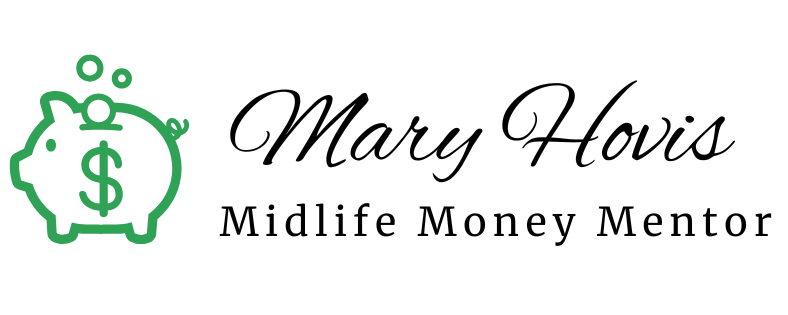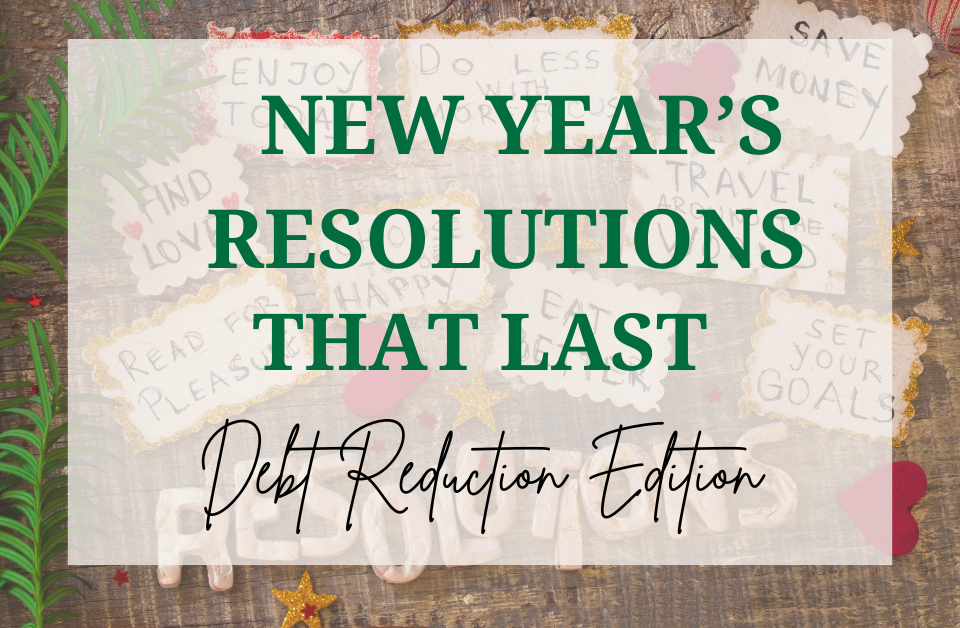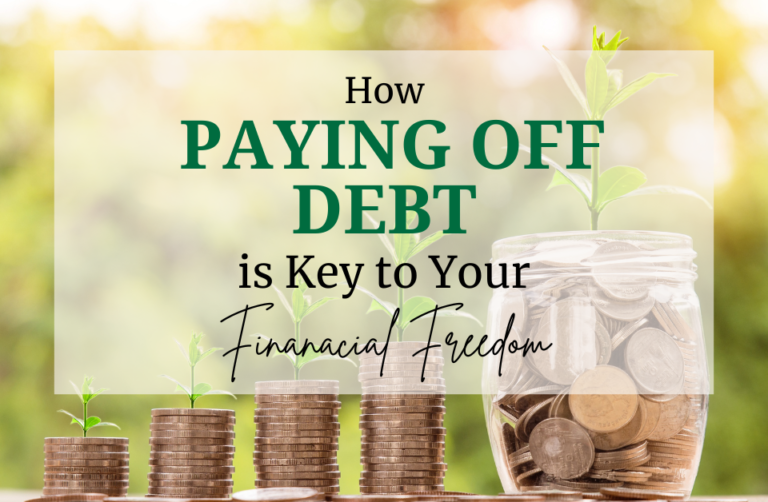You’re not alone if you’ve resolved multiple times to pay off your credit card debt for good. Does this sound familiar? The New Year’s Eve ritual of making resolutions – staring at your credit card statements, vowing that this time will be different. Knowing that you’ve made this vow so many times before without lasting success.
I’ve been there, believe me. Building a demanding career, maybe raising a family, and juggling countless responsibilities. It’s easy to let those credit card balances creep up, and it can feel impossible to break free.

Will this be the year you finally pay off your credit cards for good? It can be. You can break free from credit card debt. As a fellow midlife woman who’s been on this journey myself, I know firsthand that you can conquer credit card debt. It’s not about quick fixes or extreme deprivation, it’s about understanding yourself and making intentional changes that truly fit into your life.
Let’s ditch the generic recommendations and focus on creating a plan that’s uniquely yours. Ready?
Make This the Year You Conquer Your Credit Card Debt
New Year’s resolutions are a tradition, even for those of us who’ve set them year after year without seeing the desired results. It’s almost a cultural joke how ineffective resolutions can be. However, that feeling of a fresh start can provide the motivation you need to jumpstart real change.
So why do resolutions often fail? One common reason is that we’re too focused on short-term fixes. For example, if your resolution is to pay off your credit cards, you might succeed initially but find yourself racking up new debt soon after. Why? Because paying off the balance is only the first step. The real goal is to stop using debt to finance your life.
Let’s explore some strategies to set meaningful resolutions and make them stick.
Start with Goals That Matter to You
At the beginning of the year, we’re bombarded with “shoulds”—we should lose weight, declutter, or get our finances in order. These societal pressures can distract us from what we truly want. To create lasting change, your goals need to resonate deeply with you, not just align with trends or peer pressure. Ask yourself: Why do I want to become debt-free? What will it mean for my life?

Be Specific and Action-Oriented
Many resolutions fail because they’re too vague. Compare these two goals:
- “I want to lose weight.”
- “I want to lose 15 pounds by the end of March to feel healthier and fit into my favorite clothes again.”
The second goal is specific and tied to an emotional reason. Similarly, instead of saying, “I want to pay off my credit cards,” try: “I will pay off $5,000 of credit card debt by next December by cutting discretionary spending and using my tax refund.”
Avoid Overloading Yourself
Change requires time, effort, and focus. Be realistic about how much you can tackle at once. If you try to lose weight, organize your home, and overhaul your finances simultaneously, you’re setting yourself up for burnout. Instead, prioritize what’s most pressing and impactful. The good news? Success in one area often spills over into others.
Uncovering the Roots of Your Debt
Paying off debt is only part of the solution. To stay debt-free, you need to address the root causes. Let’s explore some common reasons and solutions:
- Emotional Spending: Many of us use shopping to relieve stress, fight boredom, or boost our mood. It’s crucial to identify these patterns. For example, do you head to the mall after a tough day at work? Write down your triggers in a journal and brainstorm healthier alternatives, like taking a walk, calling a friend, or practicing mindfulness.
- Lack of a Clear Financial Plan: Without a written plan, it’s easy to underestimate expenses and overspend. Create a detailed budget that accounts for every dollar. Include categories for irregular expenses, like car repairs or holiday gifts, so you’re prepared for the inevitable.
- Impulse Purchases: Have you ever walked into a store for one thing and left with a cart full of “great deals”? Retailers design their layouts and sales to tempt you. Practice pausing before purchases. Ask yourself: Do I truly need this, or can I leave it and still be fine?
Know Your “Why”
Understanding your motivation is key to sticking with your financial goals. My “why” is to be able to afford to retire early and comfortably. What’s yours? Maybe you want to:
- Reduce stress and enjoy greater peace of mind.
- Save for a dream vacation or your child’s education.
- Retire comfortably without financial worry.
When the going gets tough—and it will—your “why” will keep you focused.

Build an Emergency Fund
One of the biggest barriers to staying out of debt is the lack of an emergency fund. Without one, any unexpected expense—car repairs, medical bills, or home maintenance—can send you back to relying on credit cards. Start small if necessary. Aim to save $1,000 as a starter fund, then work toward 3-6 months of living expenses.
Focus on the Positives
Saving money doesn’t have to feel like punishment. Think about the freedom it will bring: the ability to say “yes” to experiences that truly matter and the peace of mind that comes from knowing you’re in control of your finances. Reframe saving as an empowering choice rather than a deprivation.
Break Your Goal Into Manageable Action Steps
Once you’ve set clear, action-oriented goals, break them into smaller, manageable steps. For example:
- Goal: Pay off $5,000 of credit card debt this year.
- Step 1: Create a budget by the end of January.
- Step 2: Pay $500/month toward debt starting in February.
- Step 3: Use any windfalls, like tax refunds, to make extra payments.
Tracking your progress will keep you motivated. Use a spreadsheet, app, or even a simple checklist to visualize your journey.
Build Habits, Not Just Willpower
That initial surge of motivation at the beginning of the year makes you feel like you’re ready to conquer the world, fueled by willpower and determination. But let’s be honest, willpower alone isn’t enough; it’s finite and easily depleted. Instead, focus on building habits that support your goals.
Remember, building lasting change takes time and effort. Be patient with yourself, celebrate your progress, and remember why you started this journey in the first place.
Your Journey to Financial Freedom
By setting meaningful, specific goals and addressing the root causes of your debt, you can make this the year you achieve lasting financial freedom. Observe the feeling of accomplishment you experience with each payment. Celebrate your wins, learn from setbacks, and stay focused on your why.
Take that first step today. Not because it’s a new year but because you’re ready for a new chapter in your financial story.
What’s one small step you’re ready to take today? Leave a comment below and let me know!




